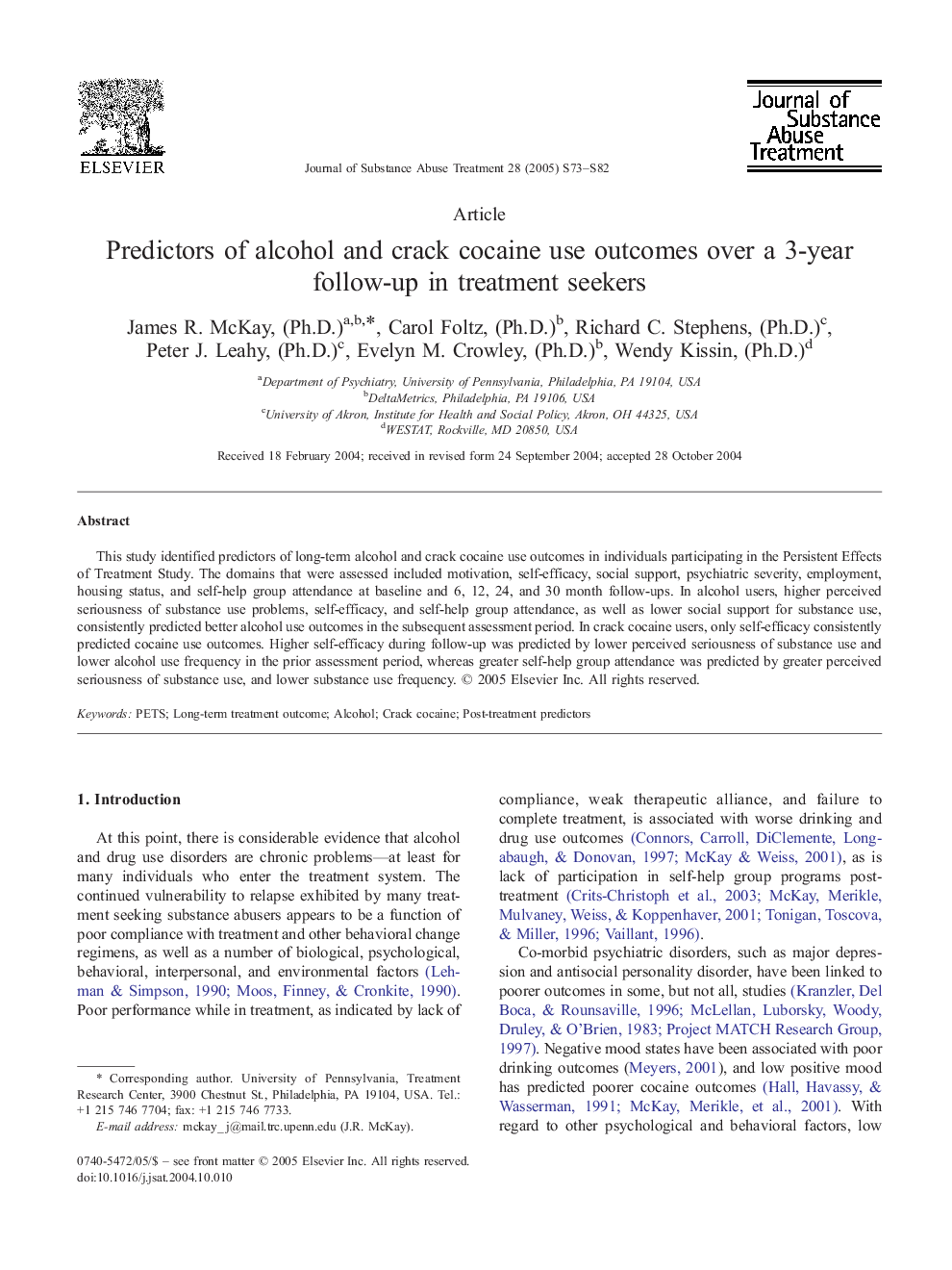| Article ID | Journal | Published Year | Pages | File Type |
|---|---|---|---|---|
| 10302772 | Journal of Substance Abuse Treatment | 2005 | 10 Pages |
Abstract
This study identified predictors of long-term alcohol and crack cocaine use outcomes in individuals participating in the Persistent Effects of Treatment Study. The domains that were assessed included motivation, self-efficacy, social support, psychiatric severity, employment, housing status, and self-help group attendance at baseline and 6, 12, 24, and 30 month follow-ups. In alcohol users, higher perceived seriousness of substance use problems, self-efficacy, and self-help group attendance, as well as lower social support for substance use, consistently predicted better alcohol use outcomes in the subsequent assessment period. In crack cocaine users, only self-efficacy consistently predicted cocaine use outcomes. Higher self-efficacy during follow-up was predicted by lower perceived seriousness of substance use and lower alcohol use frequency in the prior assessment period, whereas greater self-help group attendance was predicted by greater perceived seriousness of substance use, and lower substance use frequency.
Keywords
Related Topics
Life Sciences
Neuroscience
Biological Psychiatry
Authors
James R. Ph.D., Carol Ph.D., Richard C. Ph.D., Peter J. Ph.D., Evelyn M. Ph.D., Wendy Ph.D.,
